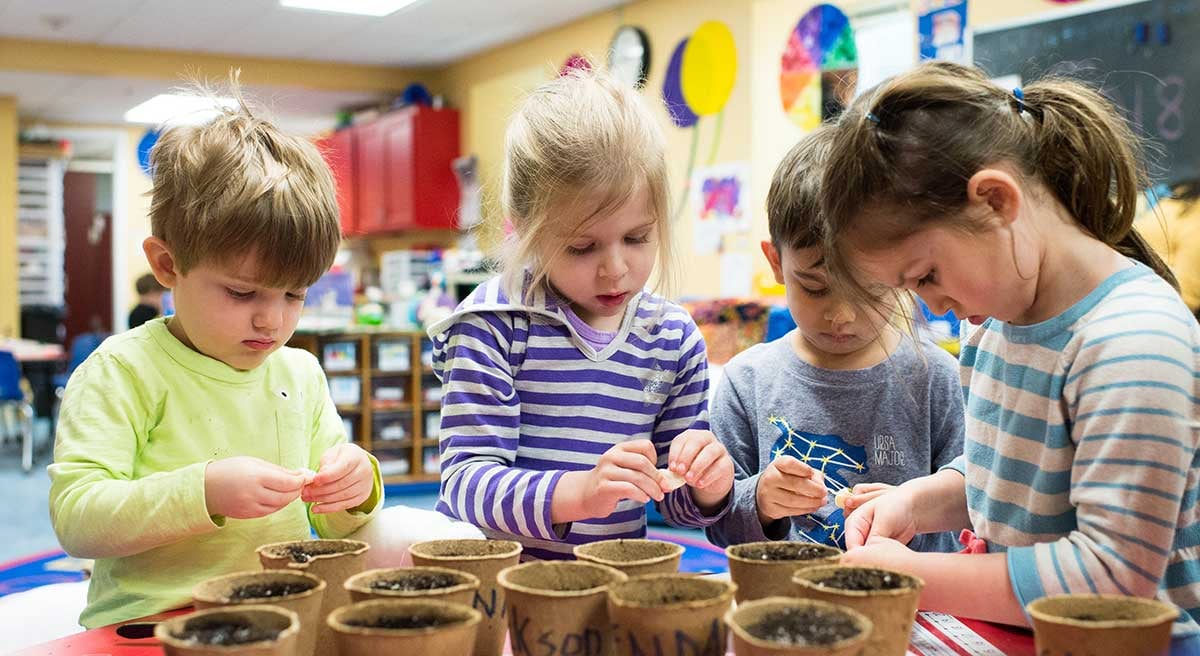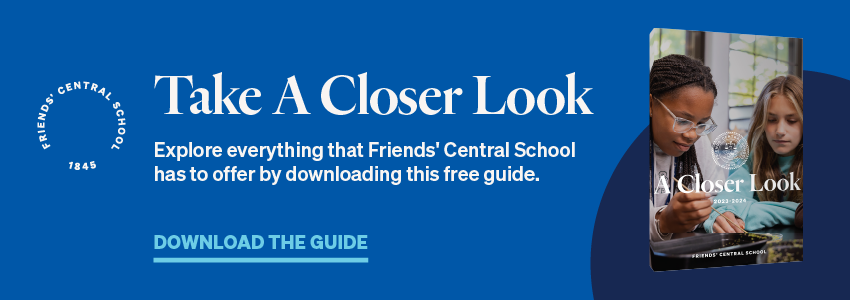
If you’re a parent of an elementary or middle school student, then you’ve probably been hearing a lot of buzz around the “maker” philosophy the past few years. But what, exactly, is a maker? What is a makerspace? And why does any of it matter to your child’s education?
The Maker Philosophy
In short, the maker philosophy is, at its heart, the idea that people have a natural drive to make things. And in a very real sense, this is true: The historic and prehistoric record tells us that, for nearly as far back as we have existed, humans have been making things. This includes tools like hammers and axes that enable us to build shelter (as many other animals have been known to do) as well as objects of cultural significance, such as statues, which help us understand the world around us and tell stories.
Free Downloadable Guide: Take a Closer Look at Friends' Central School
Making, then, can encompass everything from whittling and woodworking, to knitting and fibercraft, to engineering, 3D printing, coding, and robotics. Anything that involves constructing one thing from another thing can be considered making, and anyone who makes is a maker: Including, potentially, your child.
“Making” in Schools
Outside schools, making is often done by adults who find joy in creating something by hand. This makes a lot of sense in today’s world, where we often don’t get many opportunities to create things; there’s something incredibly satisfying in building something.
But in an educational setting, making takes on an added layer.
Though not yet universal amongst all schools, many schools are now beginning to incorporate pieces of the maker philosophy into their educational practices.
Some schools do this in the classroom as a part of traditional coursework, but others, like Friends’ Central, have dedicated areas (called Makerspaces or Maker Labs) where this making takes place. In these cases, Makerspaces are central locations filled with tools, materials, and inspiration that empowers students to create.
Schools incorporate making into their curriculum because it brings a lot of positive benefits to students, and there is data to prove it.
In traditional educational settings, children are taught in a way that divides information into neat and separate subject areas. Think History, Science, Math, and English.
While compartmentalization can be helpful, it’s also important for children to learn how to think across disciplines—to learn how to apply lessons from one subject to the problems they face in another.
Making facilitates this by encouraging students to be active and engaged learners, and by giving them the agency to explore concepts and ideas that might be difficult to cover in a traditional classroom setting. For example, a student learning about the abstract concept of electricity may have their lessons reinforced and clarified by completing a maker project where they create a working circuit.
Maker education takes the lessons that your child learns in both their STEM and non-STEM classes, and helps them put those lessons to use by actually creating something. In doing so, a maker education helps a child develop:
- An understanding of the authenticity and real-world applications of their lessons
- Agency and critical thinking skills
- A joy of learning
- Equity thinking
- A sense of creativity
- An experimental and creative mindset
Helping Your Child Become a Maker
If your child’s school doesn’t have a makerspace or doesn’t incorporate the maker philosophy into its curriculum, there are still steps that you can take as a parent to help your child gain the benefits of a maker education.
You could seek out makerspaces that cater to kids (most large cities will have at least one), consider transferring your child to a school that does incorporate making into its coursework, or even just facilitate making at home with your child. There are a growing number of books that can help you branch into making with your child. Consider Making Makers: Kids Tools and the Future of Innovation by AnnMarie Thomas.



